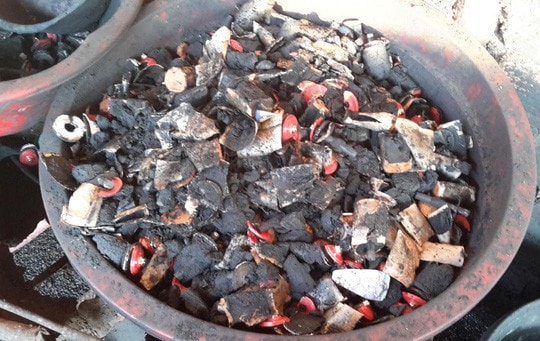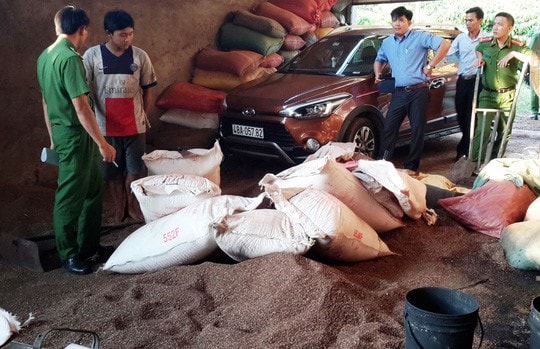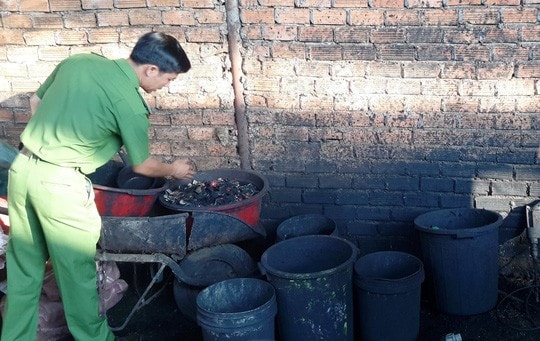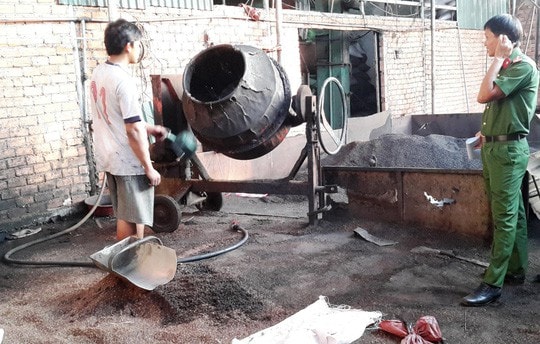Production of ground coffee from coffee husks mixed with battery eagle
The owner of the facility confessed to purchasing waste coffee, coffee husks, and broken coffee beans from dealers, then using black battery powder mixed with water to dye the coffee and sell it.
News from the Environmental Police Department of Dak Nong Province Police on April 17 said that the unit had just coordinated with functional forces to catch a facility processing "dirty" coffee by dyeing coffee with black battery powder.
 |
| Batteries are crushed to get coffee dye powder. |
Initial information said that on April 16, from a report from the people, the Environmental Police force of Dak Nong Provincial Police coordinated with the Inspectorate of the Department of Agriculture and Rural Development of Dak Nong Province to raid the coffee powder processing facility of Ms. Nguyen Thi Loan's family (in village 13, Dak Wer commune, Dak R'lap district, Dak Nong province).
 |
| Authorities raided a dirty coffee processing facility. |
At the time of inspection, the authorities discovered dozens of tons of "dirty" coffee mixed with soil and stone powder in Ms. Loan's coffee processing factory. In addition, at the processing facility, the authorities also seized two pots containing crushed batteries (about 35 kg), one bucket containing black water (about 10 kg) dissolved with batteries, 12 tons of ground coffee that the owner had dyed black with batteries and was preparing to be packaged, along with many machines and items related to the production of "dirty" coffee.
 |
| Large amounts of toxic chemicals from batteries used to dye coffee. |
Confessing to the authorities, Ms. Loan said that this coffee production facility has been in operation for many years. To have a source of raw materials, every day Ms. Loan sends people to buy back all kinds of waste coffee, coffee husks, broken coffee... from agents. Then she buys flattened batteries, uses the black powder of the batteries mixed with water and then dyes it with coffee. After dyeing, the facility roasts, grinds and packages the coffee to sell on the market for profit.
 |
| Inside Mrs. Loan's dirty coffee processing facility. |
According to Ms. Loan, since the beginning of 2018, her facility has sold more than 3 tons of "dirty" coffee that has been dyed black with batteries as above. Currently, the facility has been recorded by the authorities, all evidence has been temporarily seized and samples have been taken for testing to continue the investigation.
